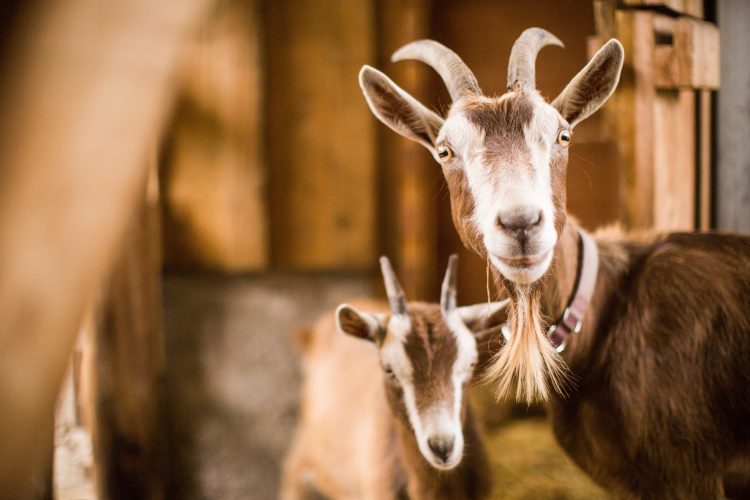Harnessing the Power of Goat Manure: Benefits and Application Methods in Agriculture
Harnessing the Power of Goat Manure: Benefits and Application Methods in Agriculture
In the realm of sustainable agriculture, the utilization of organic fertilizers plays a pivotal role in enhancing soil health, improving crop yields, and reducing environmental impact. Among the various organic fertilizers available, goat manure stands out as a valuable resource due to its nutrient-rich composition and numerous benefits for soil fertility and plant growth. In this comprehensive feature article, we will explore the advantages of utilizing goat manure as fertilizer, delve into its nutrient content, discuss various application methods, and highlight its role in promoting sustainable agricultural practices.
- Understanding Goat Manure:
- Nutrient Composition: Goat manure is a valuable source of essential plant nutrients, including nitrogen (N), phosphorus (P), potassium (K), and various micronutrients such as calcium, magnesium, and sulfur. Unlike synthetic fertilizers, goat manure provides a balanced nutrient profile that supports healthy plant growth and soil fertility.
- Organic Matter Content: In addition to its nutrient content, goat manure is rich in organic matter, which plays a crucial role in improving soil structure, water retention, and microbial activity. The organic matter in goat manure helps to build soil organic carbon, enhancing soil fertility and resilience to environmental stressors.
- Microbial Diversity: Goat manure harbors a diverse community of beneficial microorganisms, including bacteria, fungi, and earthworms, which contribute to soil health and nutrient cycling. These microorganisms aid in decomposing organic matter, releasing nutrients, and suppressing soil-borne pathogens, thereby promoting plant growth and disease resistance.
2.Benefits of Using Goat Manure as Fertilizer:
- Soil Conditioning: The organic matter in goat manure improves soil structure, increasing its porosity, water infiltration, and aeration. Well-structured soils with adequate organic matter content are better able to retain moisture, support root growth, and sustain healthy microbial populations, leading to improved crop productivity.
- Nutrient Supply: Goat manure provides a slow-release source of nutrients to plants, ensuring steady nutrient availability throughout the growing season. The balanced NPK ratio in goat manure promotes balanced plant growth, flowering, and fruiting, resulting in higher yields and better-quality produce.
- Weed Suppression: When used as mulch or incorporated into the soil, goat manure can help suppress weed growth by smothering weed seeds and inhibiting their germination. This natural weed control mechanism reduces the need for herbicides and manual weed management, saving time and labor for farmers.
- Environmental Benefits: By recycling organic waste from goat farms, the use of goat manure as fertilizer reduces the environmental impact of waste disposal and mitigates greenhouse gas emissions. Furthermore, the adoption of organic farming practices contributes to soil conservation, biodiversity preservation, and water quality improvement.
3.Application Methods:
- Composting: Composting goat manure with carbon-rich materials such as straw, sawdust, or leaves accelerates the decomposition process and enhances the nutrient content and stability of the compost. Mature composted goat manure can be applied to soil as a soil amendment or incorporated into potting mixes for container gardening.
- Top Dressing: Applying goat manure as a top dressing involves spreading a layer of fresh or composted manure over the soil surface around plants. This method provides a gradual release of nutrients as the manure decomposes and minimizes nutrient leaching and runoff, especially in perennial crops and orchards.
- Soil Incorporation: Mixing goat manure into the soil during land preparation or planting helps distribute nutrients evenly and improves soil structure throughout the root zone. Incorporation can be done using tillage equipment, plows, or hand tools, ensuring thorough blending of manure with the soil for maximum benefit.
- Liquid Fertilization: Brewing goat manure tea by steeping fresh or composted manure in water creates a nutrient-rich liquid fertilizer that can be applied directly to plants as a foliar spray or soil drench. Goat manure tea provides a quick boost of nutrients and beneficial microorganisms, enhancing plant growth and vitality.
4.Best Practices and Considerations:
- Quality Assurance: To ensure the effectiveness and safety of goat manure as fertilizer, it is essential to source manure from healthy animals fed a balanced diet free from contaminants such as pesticides, antibiotics, and heavy metals. Proper storage, handling, and composting of manure also help reduce the risk of pathogen contamination and nutrient loss.
- Application Timing: Timing of goat manure application depends on the crop’s nutrient requirements, soil conditions, and climate. Ideally, manure should be applied before planting or during periods of active plant growth to maximize nutrient uptake and minimize nutrient losses through leaching or volatilization.
- Environmental Considerations: While goat manure offers numerous benefits for soil and plant health, it is important to use it judiciously and in accordance with local regulations to prevent nutrient runoff, water pollution, and soil degradation. Sustainable nutrient management practices, such as soil testing, nutrient budgeting, and erosion control, help minimize environmental impacts and optimize fertilizer use efficiency.
Conclusion:
In conclusion, the utilization of goat manure as fertilizer offers a sustainable and environmentally friendly approach to enhancing soil fertility, improving crop yields, and promoting agricultural resilience. By harnessing the power of goat manure and adopting sound nutrient management practices, farmers can optimize resource use, minimize environmental footprint, and contribute to a more sustainable food system. As the demand for organic and regenerative farming practices continues to grow, goat manure stands poised as a valuable resource for sustainable agriculture now and in the future.
Previous Article
Harnessing Nature’s Helpers: The Vital Role of Goats in Sustainable Land ManagementNext Article
Goat Farming
April 25, 2025































































